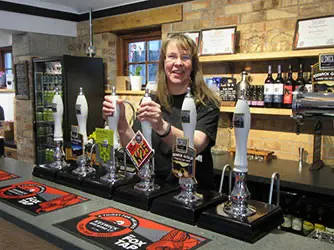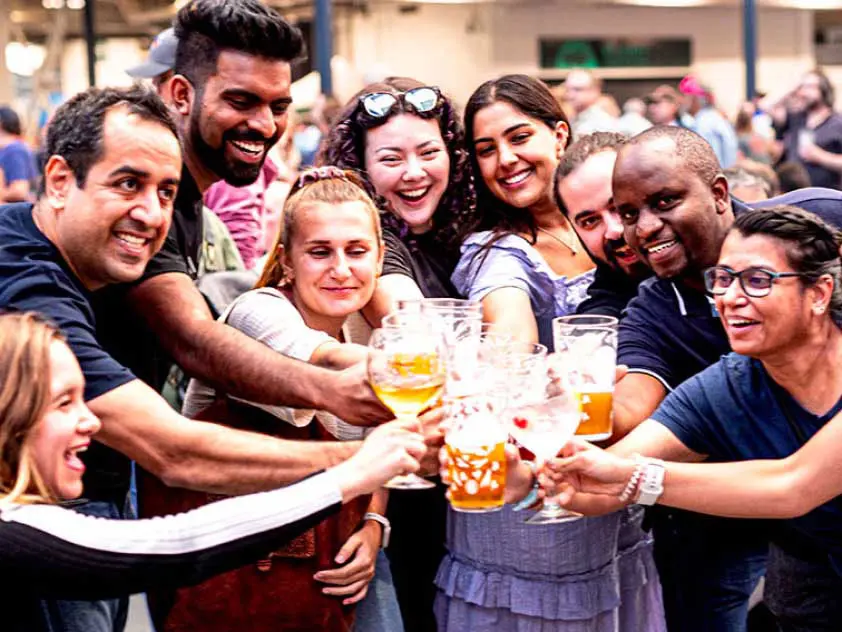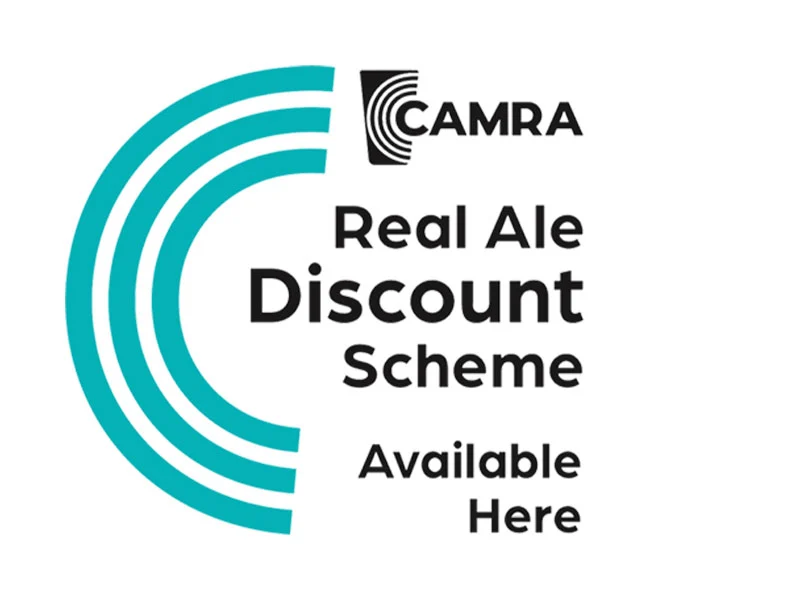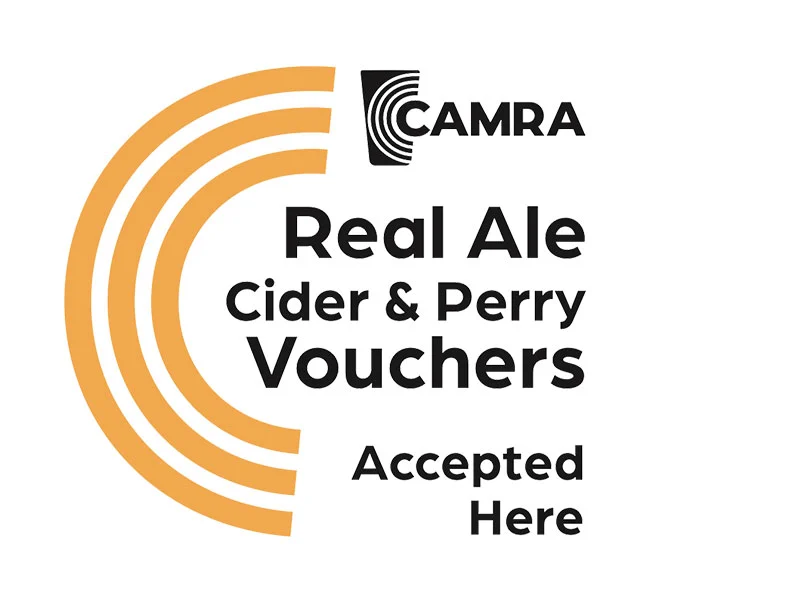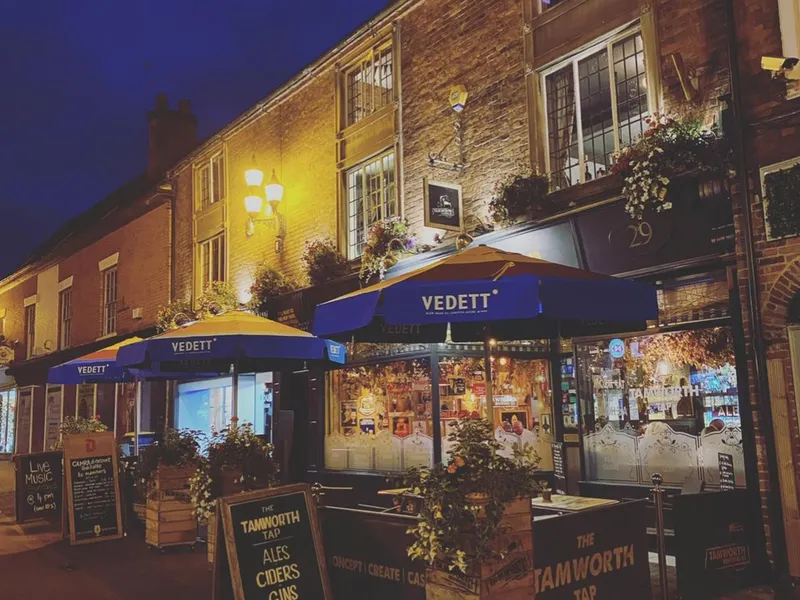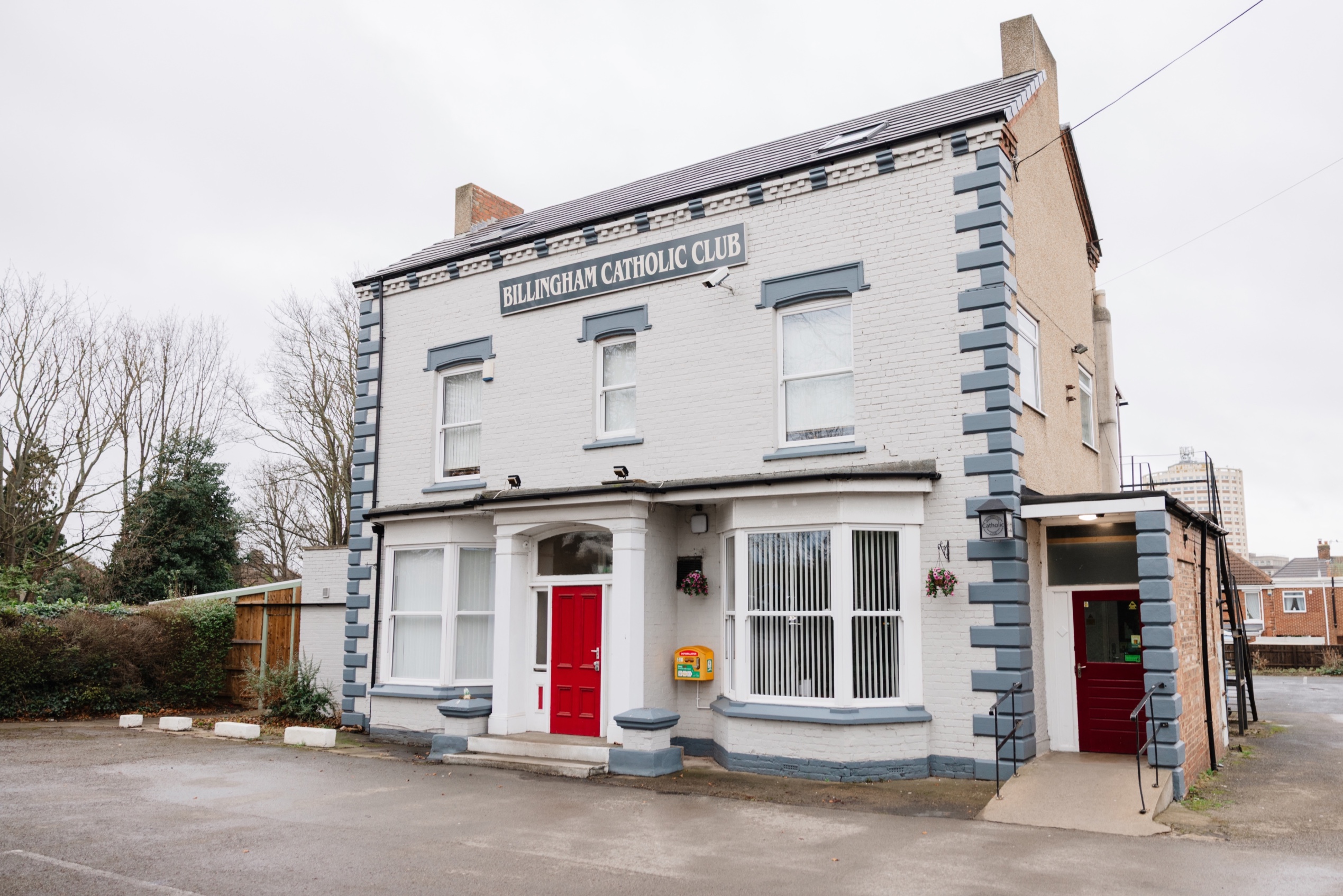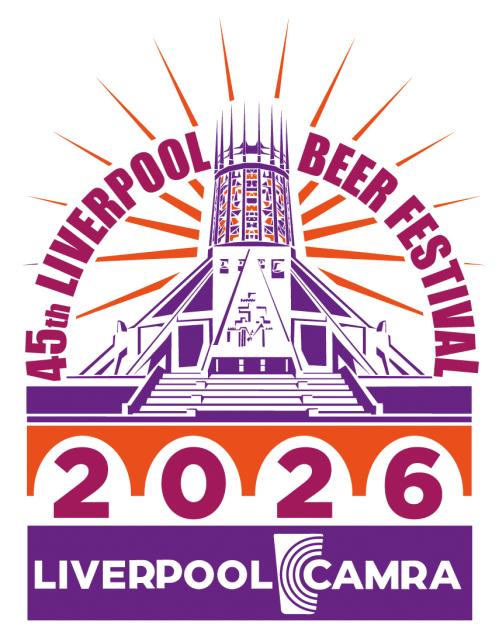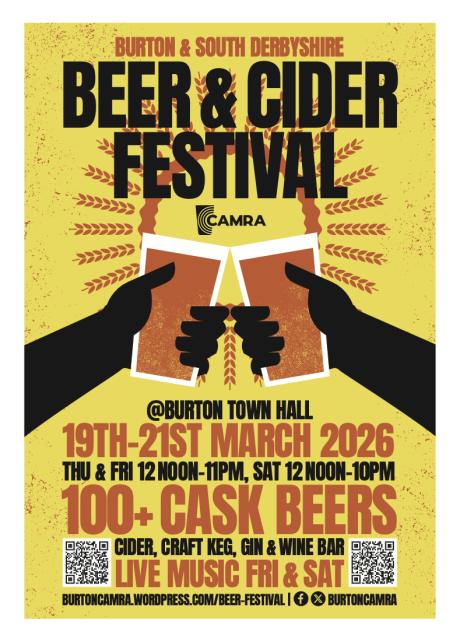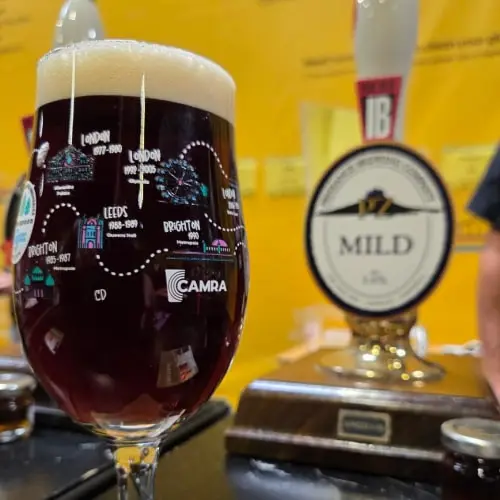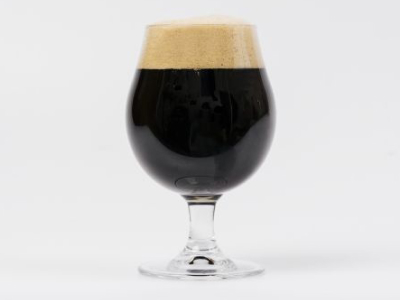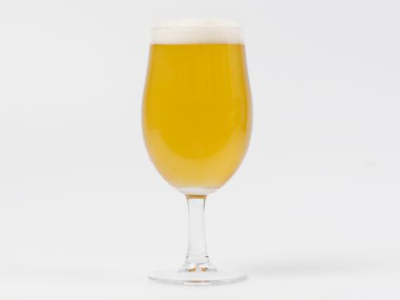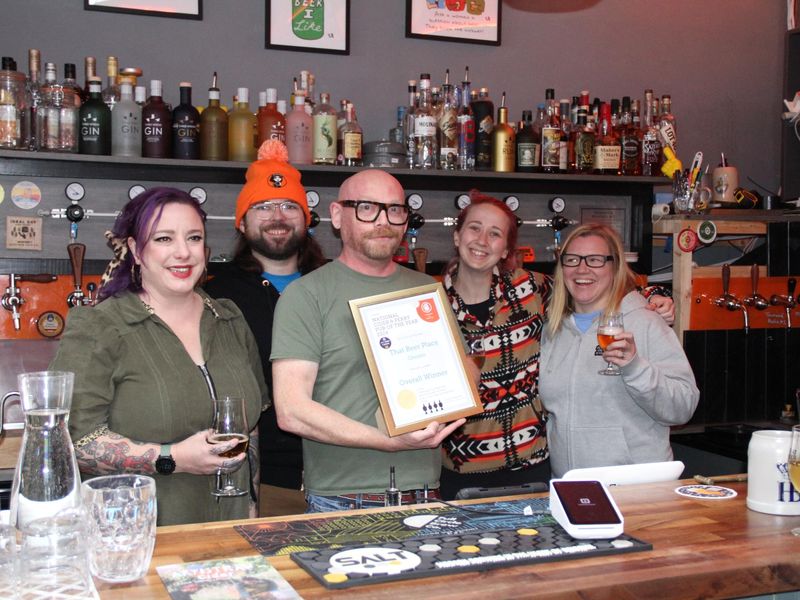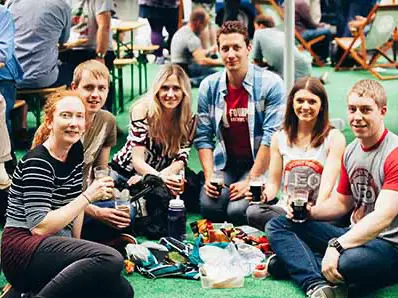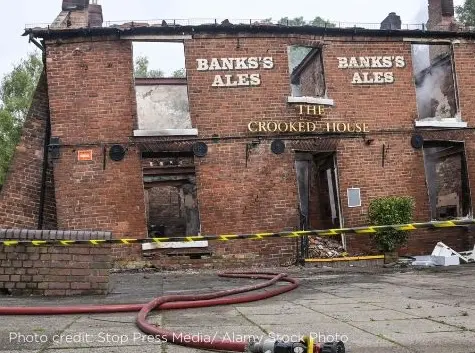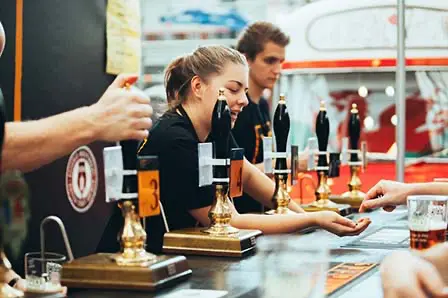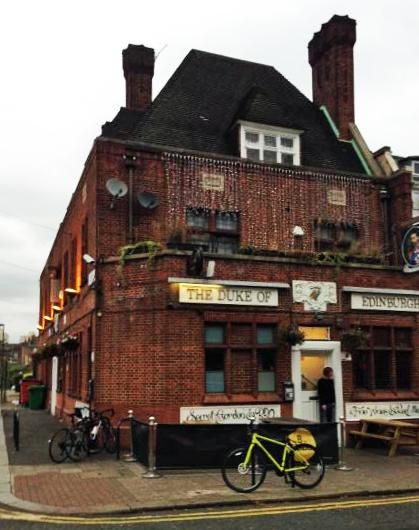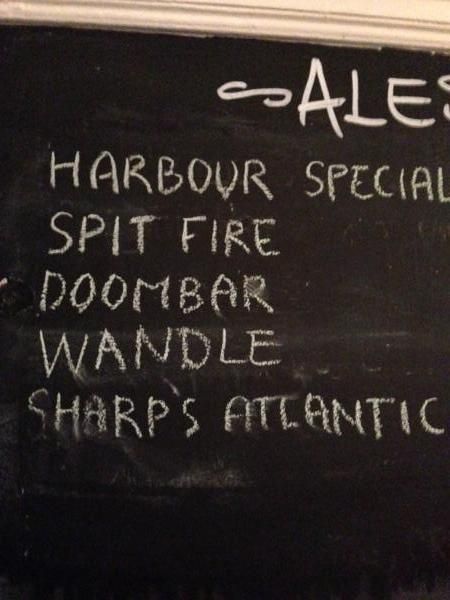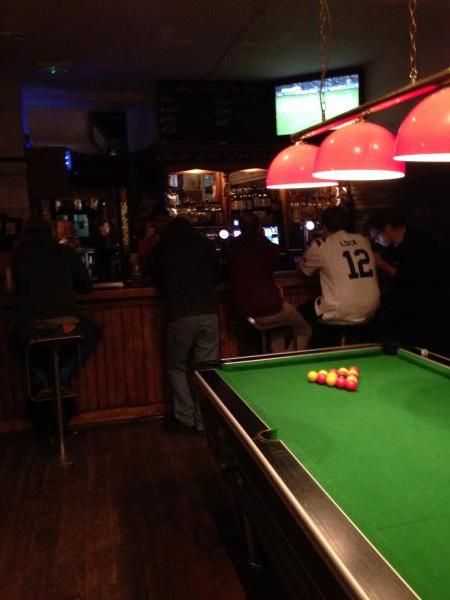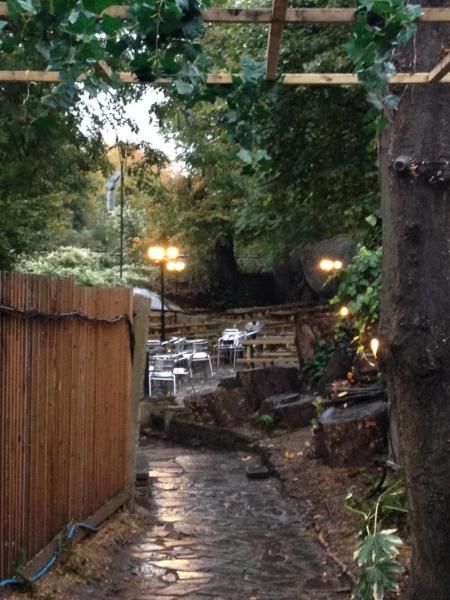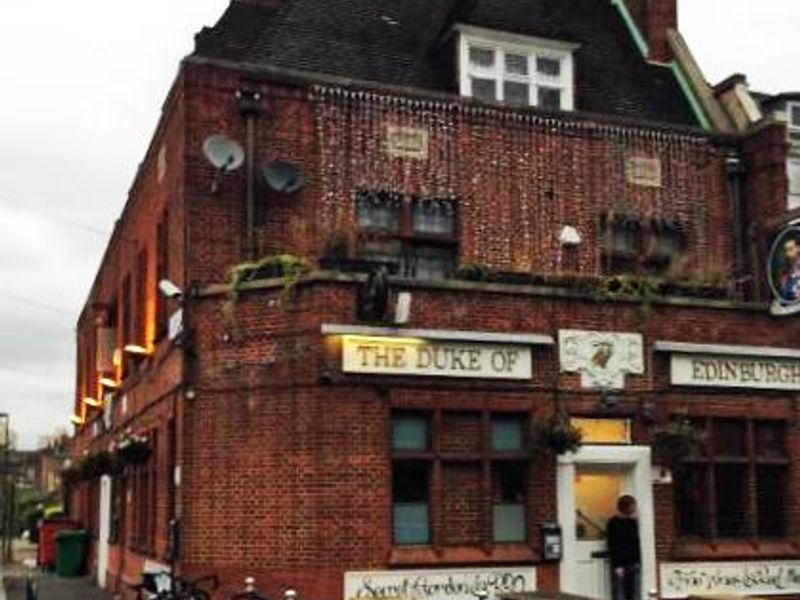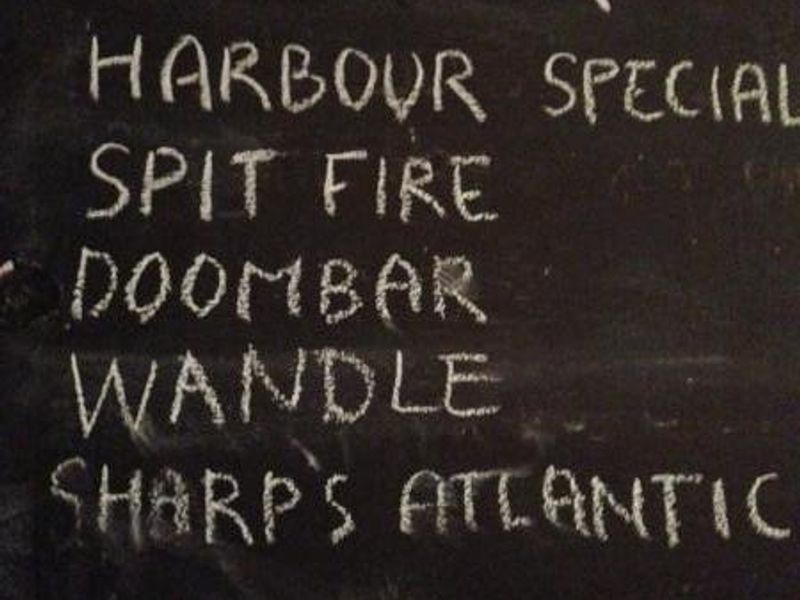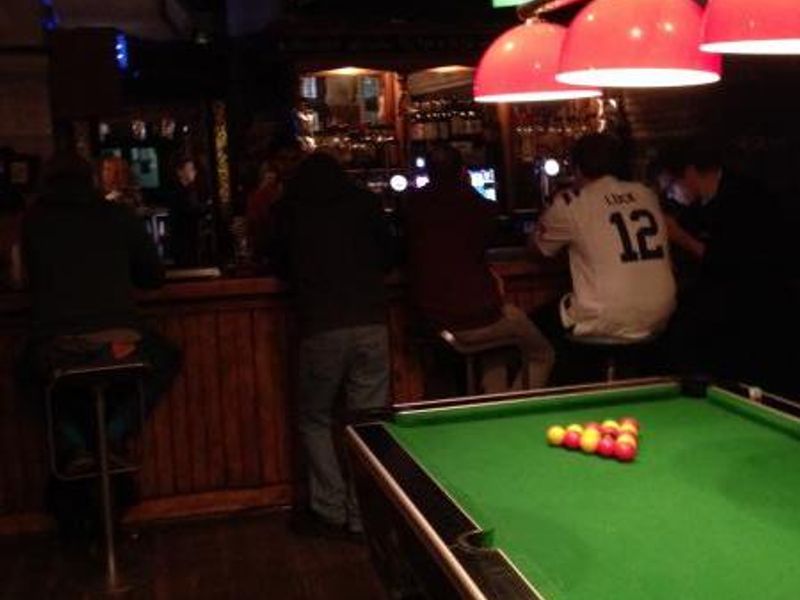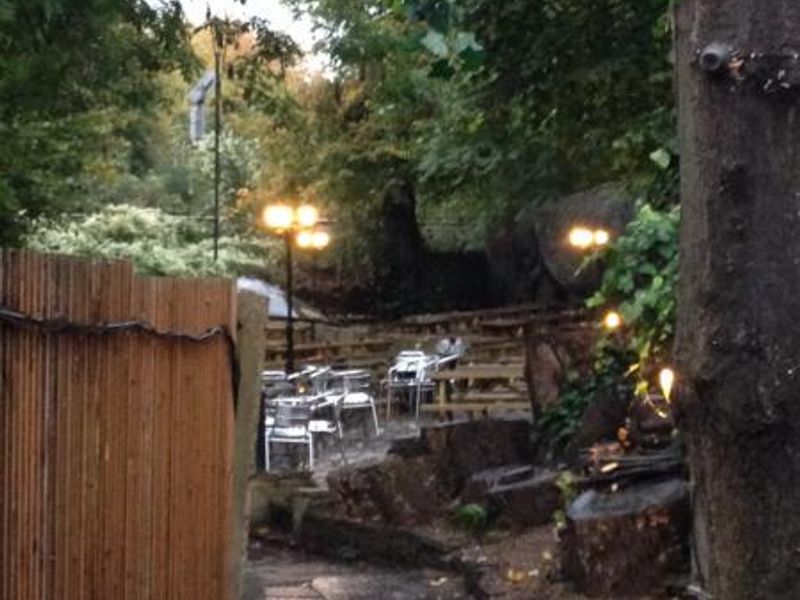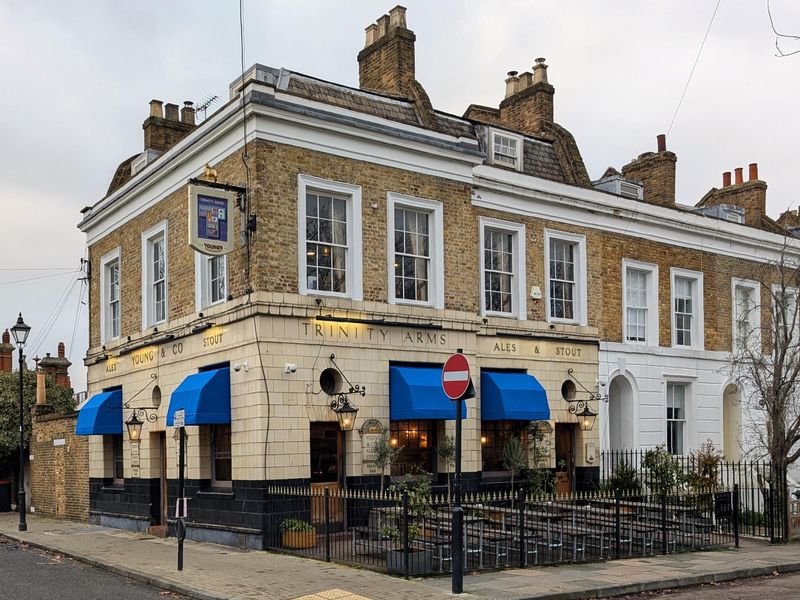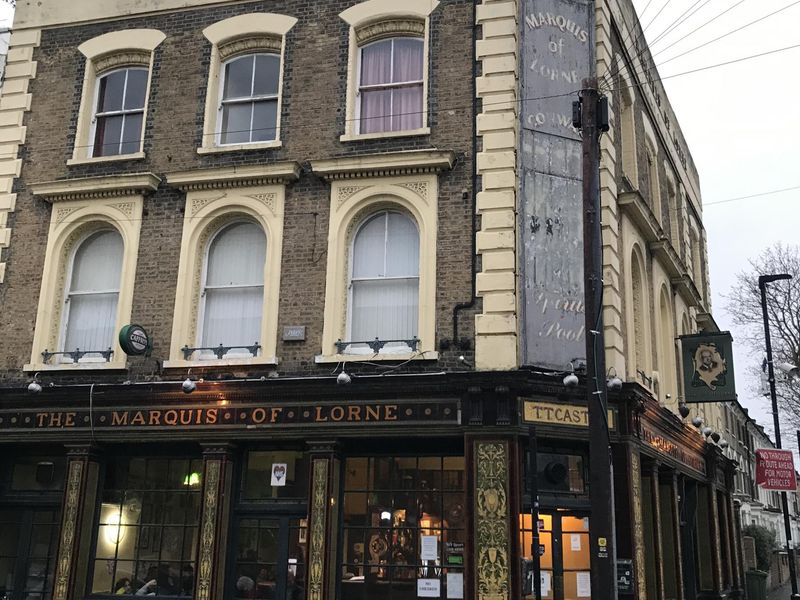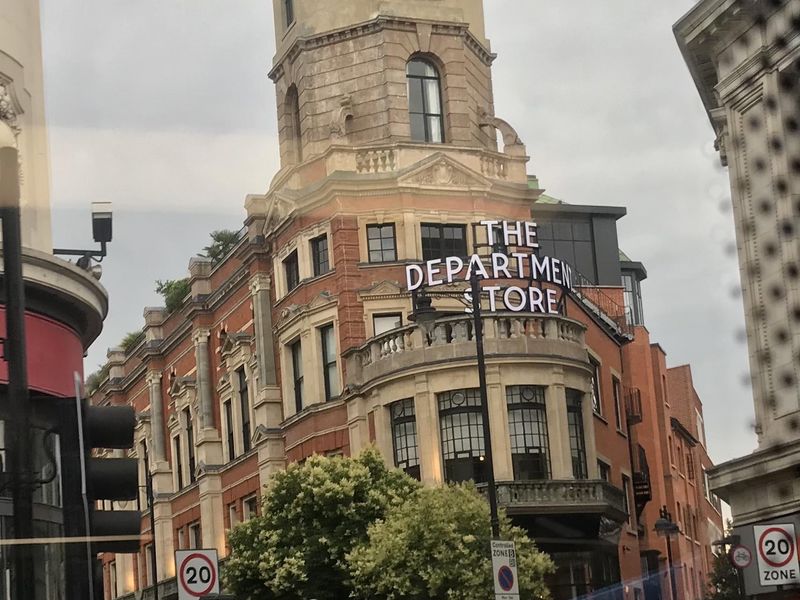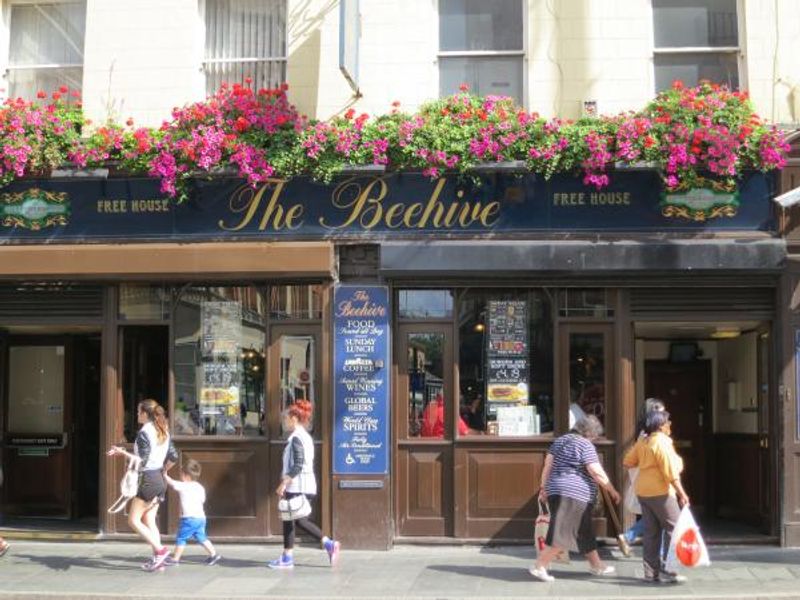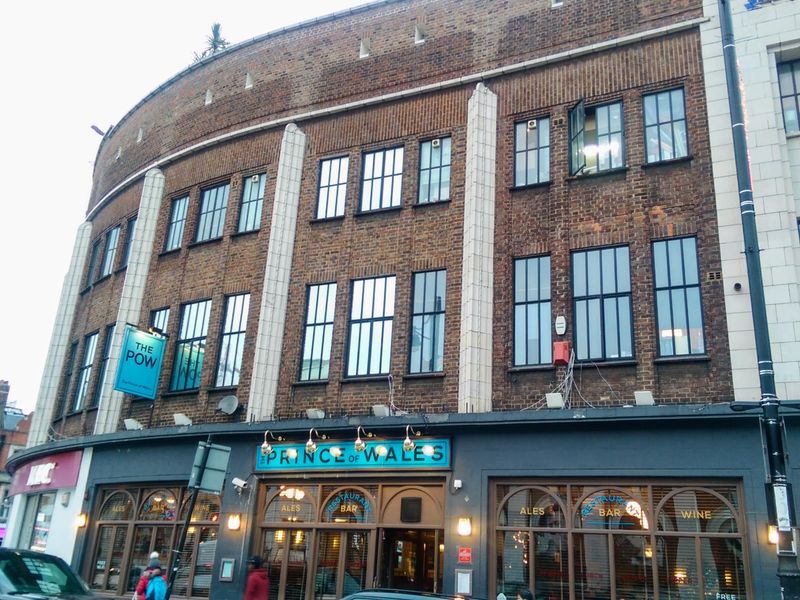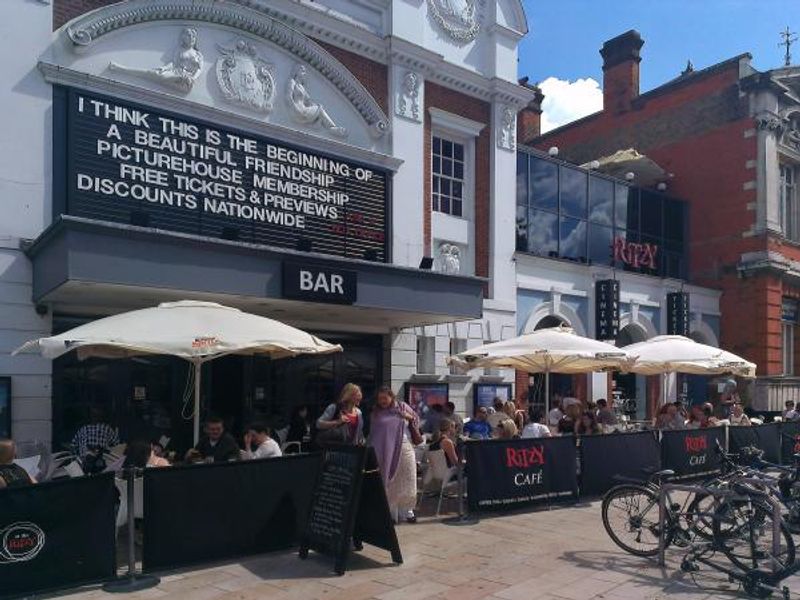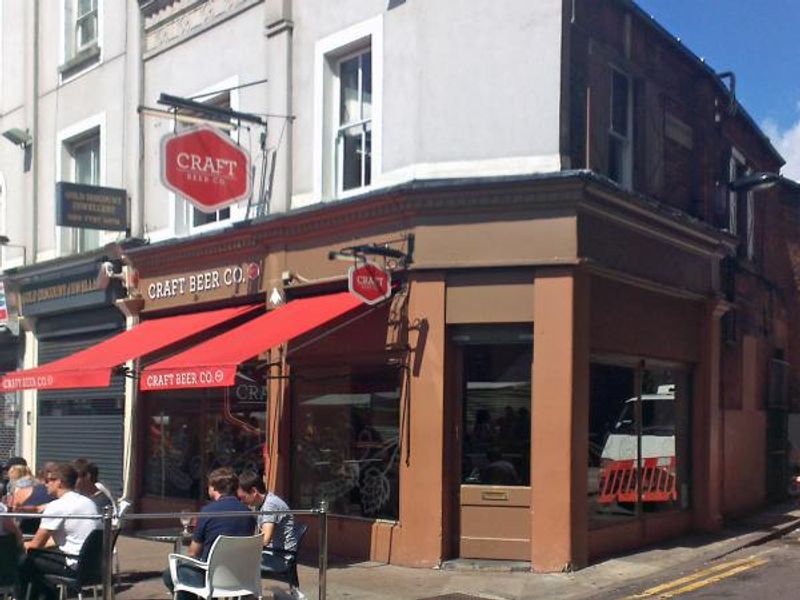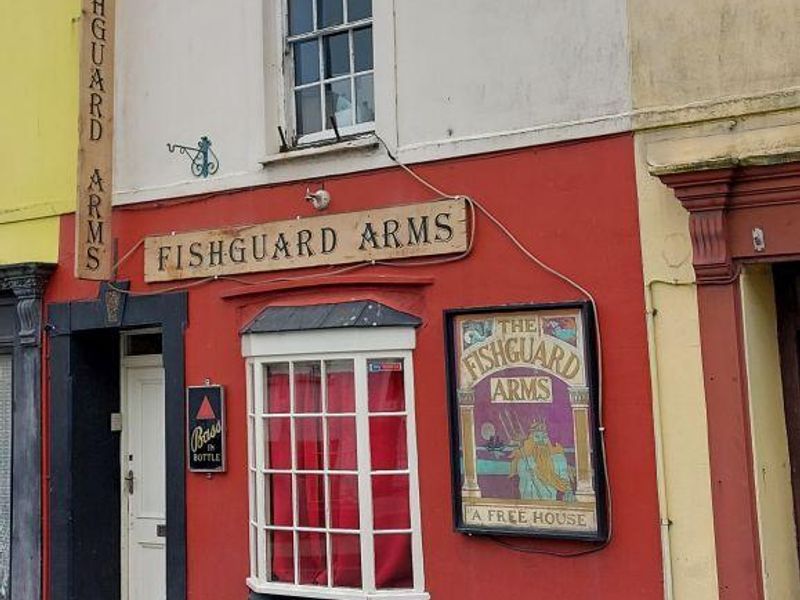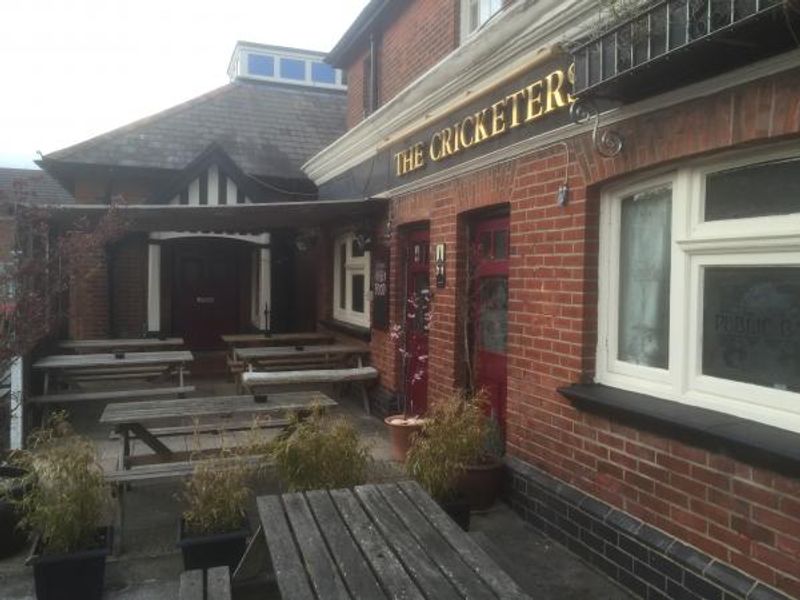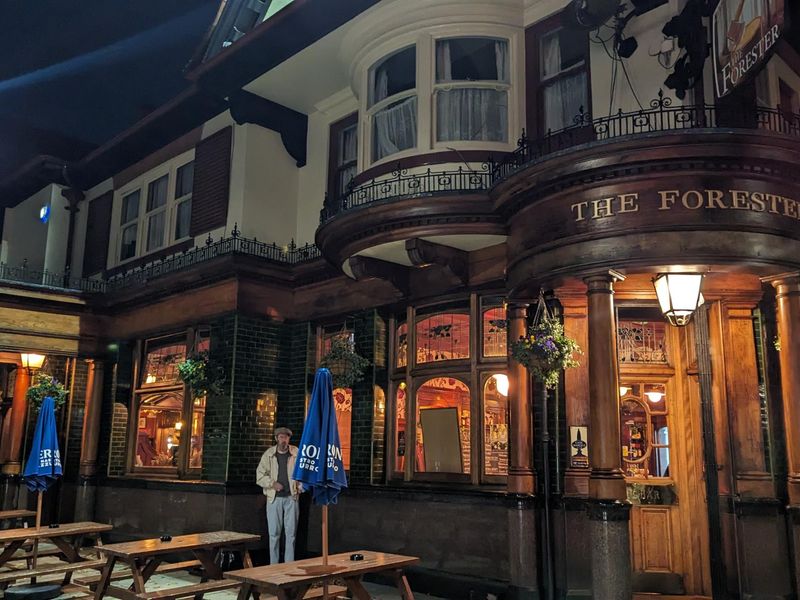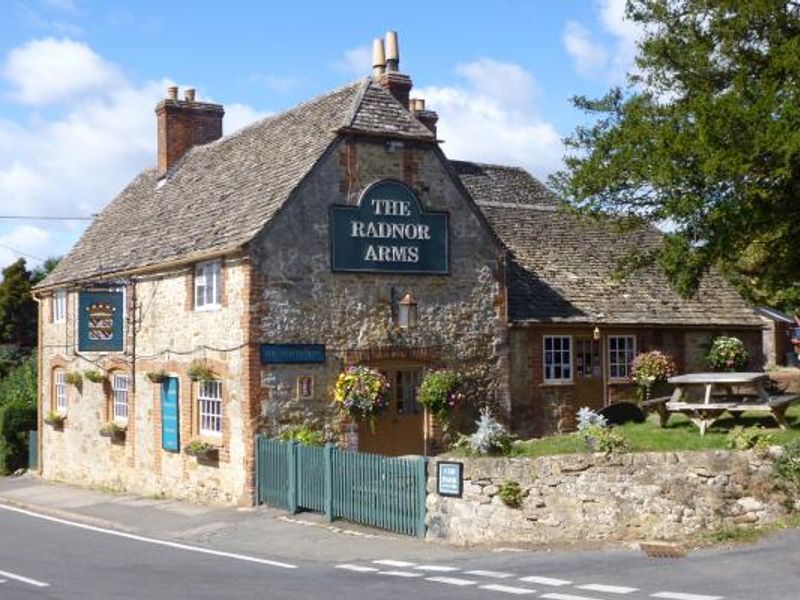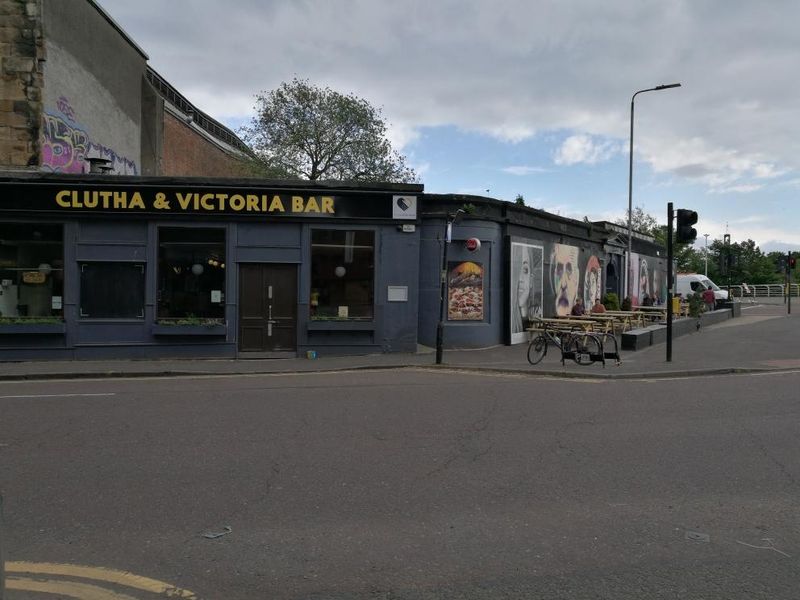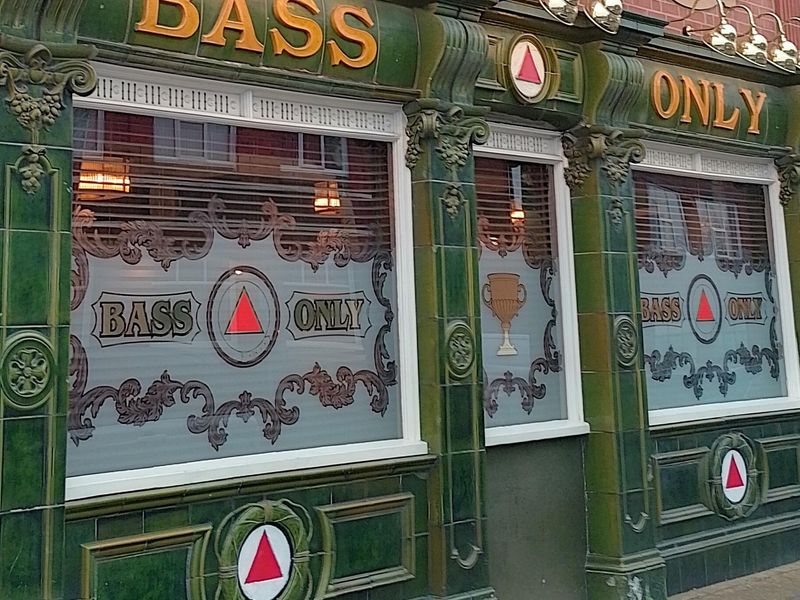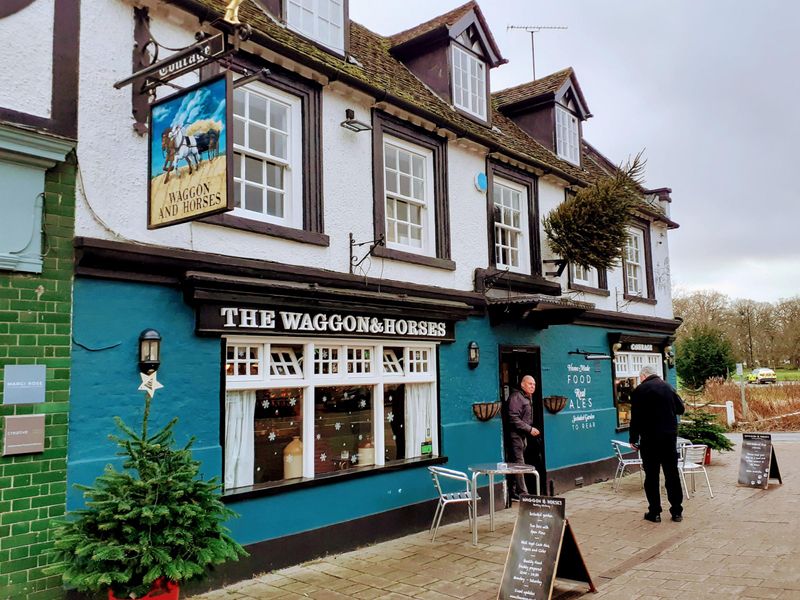Grade II listing:-
he new Duke of Edinburgh was completed in 1937, to the designs of A E Sewell (1872-1946), principal architect for the East London-based brewers Truman, Hanbury, Buxton & Co, founded in c1666. Plans, sections and elevations of the pub – signed by Sewell and dated March 1936 – survive in Lambeth Archives. As designed, the pub had a public bar and interconnecting games room to the south end, entered via Ferndale Road; and a saloon bar and lounge and billiard room, entered from the west, via Bythorn Street. In between the two set of rooms was a small self-contained outdoor department (or off licence), also entered via Bythorn Street. At some point the ground floor rooms of the building were opened up, with the glazed screens (and in one case a short piece of wall) which separated the spaces, removed; otherwise the pub is largely unaltered. To the rear The Duke of Edinburgh has an extensive garden, accessed via the passage at the north of the building, opening off Bythorn Street. It retains crazy paving and low stone retaining walls, which may be original to the 1930s garden scheme.
Details
The Duke of Edinburgh, 1936-7, by A E Sewell, built as an ‘improved’ public house for the brewery Truman, Hanbury, Buxton & Co. Ltd.
MATERIALS: the building is faced in thin red bricks laid in English bond, with sparing use of stone dressings. The windows are metal casements with square leaded lights, set within moulded brick mullioned and transomed surrounds. The roof is covered in clay tiles.
PLAN: the building occupies a narrow rectangular plot on the corner of Ferndale Road and Bythorn Street, with the main elevation facing southwards onto the former. On the Ferndale Road frontage the pub joins the two-storey terraced housing of c1860 and on the Bythorn Street elevation it is separated from further terraced housing by a passage accessing the pub’s private entrance and the rear garden.
The pub consists of two main storeys, in addition to a cellar, and an attic in the steeply pitched hipped roof. The ground floor of the Ferndale Road façade projects forward and has a distinctive splayed corner, common in Truman’s pubs built on corner plots between the wars. Internally the original pub rooms have been opened up to one another and wrap around a long L-shaped bar.
EXTERIOR: both the south and west frontages are characterised by flat brick elevations with symmetrically ordered chamfered brick mullion and transom windows, the roof being punctuated by dormer windows along with three substantial brick chimneystacks. The survival of Sewell’s original elevation drawings, along with an early photograph, shows that the exterior of the Duke of Edinburgh survives as built. The central doorway on the Ferndale Road front (originally serving the public bar), and that at the centre of the Bythorn Street elevation (serving the saloon bar), are both topped by wrought iron screened fanlights, and above these are decorative sculpted stone relief panels, with Baroque style roundels inset with the Truman’s eagle emblem. To the north side of the Bythorn Street frontage is a set of rolling-in doors, beneath a window, which are paired with a set of internal cellar flaps, which would have allowed brewery draymen to deliver barrels of beer directly from the street. Throughout, the windows are original – retaining their decorative leaded and stained glazing – and all of the pub’s doors remain, though that which originally led into the saloon bar is no longer in use.
INTERIOR: as with the exterior of the Duke of Edinburgh, the pub’s interior survives very little altered and is a typical example of Truman’s inter-war ‘house style’, with features such as embossed branded mirrors, light-coloured oak panelling, and brick and moulded timber fireplaces. Although most of the internal divisions between the rooms have been lost, the 1937 plan form remains apparent in the retention of original doors to the formerly separate bars, remnants of the dividing screens, and the varied treatment of the rooms.
The public bar and games room on the south are the most rudimentary of the pub’s rooms, with simple Truman’s matchboard panelling to dado level, the bar counter being panelled in the same fashion. A shallow arched brick fireplace is retained in the public bar along with all of the original fixed benching. Behind the counter is the original tripartite oak bar back, with a set of three recessed mirrored panels serving as back boards. The bar back has thin octagonal-faced columns set beneath a trio of shallow four-centred arches. The bar back in this section serves to screen off a private office which is accessed through a door on the west side of the servery. The office arrangement remains as built. The public bar and games room were served by lavatories for men and women, placed at the pub’s south-west corner. The toilets survive in this location today, though for women only, and with modern fittings.
The former division between the public bar and the games room is clear from the remaining upper glazed portion of a screen, which runs perpendicular to the counter across the room, and from the supporting piers. The bar counter continues (forming the return of that serving the public bar). The room also has original matchboard panelling and there is a short stretch of original fixed oak benching. From this room there is now access through the former off sales department to the saloon bar.
The space which was formerly used as the off sales department is retained, and the original doorway remains in use as the main route of access to the west side of the pub. The counter which served this area, along with two of the screens which sectioned it off from the saloon bar and games room, have been removed. However, the stretch of bar counter which now serves this space matches that in the games room and public bar, suggesting the off sales counter may simply have been moved back in line with the rest of the bar.
The fittings and fixtures in the saloon bar identify it as of a higher status than the public bar and games room. This area is fitted with picture-rail height fielded panelling throughout and has its original bar counter, also featuring fielded oak panelling, as well as counter doors and a chequer-pattern tiled border. Behind the counter, the three-part bar back matches that in the public bar. To either side of the bar back a leaded glazed screen projects diagonally across the space behind the counter (though allowing a through-way for staff), marking the bar counter divide between the saloon bar and the lounge and billiard room on one side, and what was the off sales department to the other. The saloon retains a fireplace with a moulded oak surround and overmantel and an inset Truman’s embossed mirror. This fireplace adjoins an L-shaped section of fixed settle-type benching beneath a leaded window through to what was the adjoining off sales department.
The north end of the building is occupied by what was formerly the large lounge and billiard room. This was accessed via the saloon bar through a door in a glazed screen, now largely lost, though remnants of the side and upper potions survive. As a class of room, lounge bars were a new development of inter-war pubs, constituting the most socially elite portion of the building. The lounge and billiard room was served by a short counter, formed of the return of the long saloon bar counter (separated by the diagonal screen mentioned above). The room features picture-rail height panelling throughout and has an inglenook fireplace on the east wall. This contains a broad central stone fireplace, the fielded panelling above being inset with an embossed Truman’s mirror, flanked by leaded stained-glass windows on either side, with fixed settle-type benching set into the splayed, oak panelled, returning walls. The room was served by male and female toilets, both of these surviving (although now solely for men’s use), flanking the inglenook. The far end are double doors leading out to the passage and garden. The current doors are modern replacements, but they retain their original fanlights, with leaded and stained glazing.
